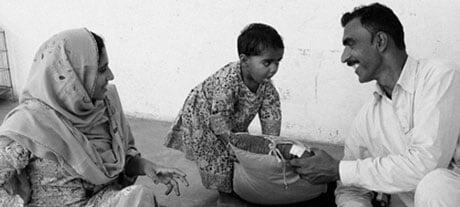KARACHI, Pakistan – At least 150,000 women in Pakistan suffer from obstetric fistula – damage to the bladder or large intestine caused by obstructed labour. Because of fistula, they leak urine and/or feces uncontrollably. Every year, six thousand more Pakistani women develop this condition. Only 800 are treated with corrective surgery. The rest face a life of stigma and exclusion from their communities. They become social outcasts.
“The government will establish a National Task Force on Fistula to move from a campaign-based to a permanent service-based approach for the management of this stark health challenge,” said Dr. Assad Hafeez, a Director-General in the Ministry of Health, during a regional fistula conference in Karachi from 4-6 March.
The conference brought together 3,000 activists, including 11 international fistula surgeons. It covered a range of issues, from safe motherhood to social reintegration of fistula survivors, providing an opportunity to reach consensus on priorities and draw attention to the linkages between fistula and poverty, inequality, gender disparity and poor education. The participating surgeons also operated on complex fistula cases while they were in Pakistan.
Government officials at the conference stressed that fistula should be addressed as a matter of human rights and social justice. “Women with fistula are looked down upon and many are divorced because of this condition, even though fistula is not directly linked to death and can be successfully repaired by a trained surgeon,” Dr. Hafeez said. “If we don’t play a more proactive role – providing basic health care and training more competent staff on safe motherhood and emergency obstetrical care – we won’t be able to help thousands of women who suffer from fistula,” he added.
Seven regional centres have already been established in major cities, along with seven referral centres in government-owned teaching hospitals. They provide fistula treatment free of charge, including the cost of transportation and accommodation, making access to care easier for women. But it’s not enough. The UNFPA Representative in Pakistan, Mr. Rabbi Royan, called for intensified effort, political commitment, additional resources, and strengthened collaboration among government departments, community groups, NGOs, UN agencies and health professionals to end fistula in Pakistan.
Conference participants designated March 21st as Fistula Awareness Day in Pakistan. Commemorated for the first time in the country, the event was co-hosted by the Spouses of the Heads of Mission from Australia, Canada, France, Spain, Switzerland, Turkey, United Kingdom and the United States.


